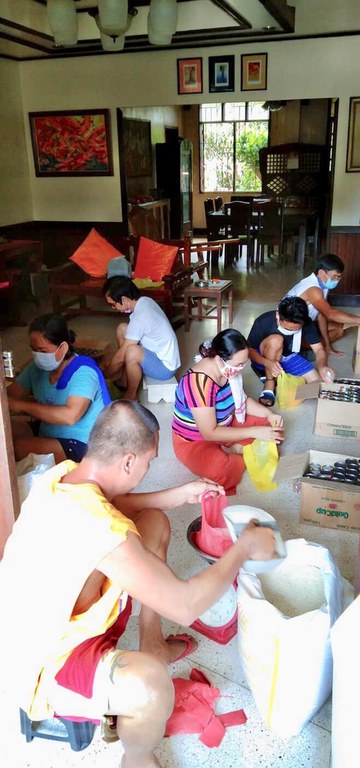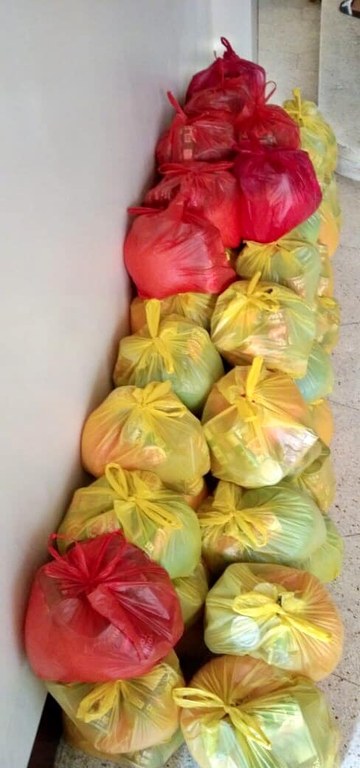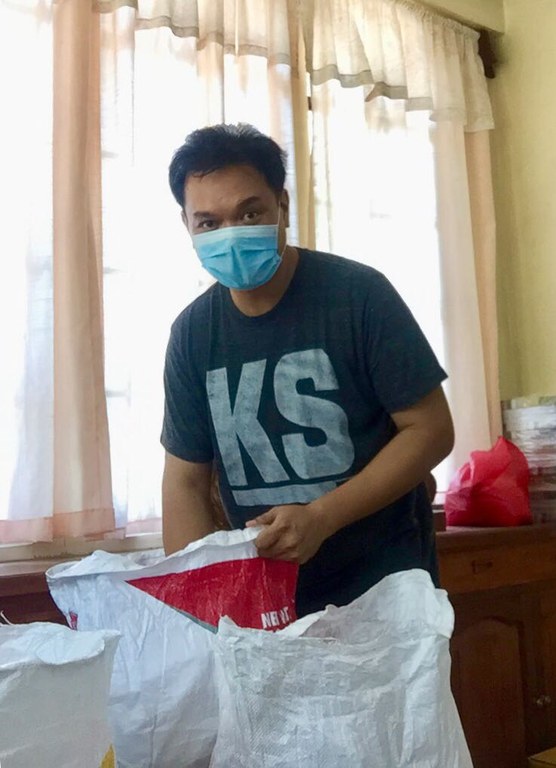Love in the Time of COVID-19 Pandemic
Andrei Paz
When the entire island of Luzon in the Philippines was declared under community quarantine to control the spread of COVID-19, I was in my hometown — a small municipality in northern Luzon. People were anxious about the impact of the virus on their lives, their families and their community. Most of them, including myself, stayed at home for fear of contracting the deadly virus.
For a couple of weeks, I prayed, watched the news and kept to myself. I saw on television how many Filipinos tried to flee the cities and return to their provinces. Many of them were manual workers and daily wage earners who are displaced by the lockdown since their employers could no longer financially support them. Some had to walk hundreds of miles since public transportation was suspended. Eventually, they arrived at the home of their relatives, only to undergo self-isolation because they might be carriers of the virus.
Besides the fear of contracting the virus, many people here are also worried about starvation. Food is a major concern for those without work and salary. Although local governments provide some rations, they are still insufficient. As a result, many people are desperate.
Some of my friends asked me what we could do to help. After much reflection, we decided to give bags of groceries to those who are hit the hardest: indigent families, and displaced workers.
With little resources, but an abundance of trust in divine providence, we requested food supplies from friends who own rice and grocery stores with the promise of paying them later. Thanks to their consideration and kindness, we were soon able to start repacking in my family home. To keep everyone safe, we were careful to take precautions and observe social distancing guidelines.
We consulted local government authorities of two municipalities in La Union, Bangar and Sudipen, on how to distribute the groceries. In order to reach those who were most in need while minimizing the risk of exposure to the virus, it was recommended that we collaborate with healthcare workers monitoring those in self-isolation. Thankfully, they were delighted to assist us.
Within a short time, we were able to raise sufficient funds to cover the cost of the first batch of groceries. Then, other locals learned about what we were doing and expressed their wish to participate in our relief efforts. To my surprise, I started to receive messages from neighbors as well as from strangers, asking me to pick up various food and other household items — a reminder of the miracle of the multiplication of loaves and fish!
Each grocery bag contains 3 kilograms of rice, a bar of anti-bacterial bath soap, and assorted canned goods, all of which costs roughly US$6. It may not seem much, but we hope to at least let people feel that they are not alone in this crisis, other people care about them. We aim to distribute rations every two weeks until we have spent all our funds or until the crisis has ended. My hunch is that, when that day arrives, we will still have plenty of groceries left over!
All of us are fearful, yet also hopeful that this crisis will soon come to an end. We remain mindful of our health and safety, of those around us, and of frontline workers. We continue to pray for the recovery of the ill, for the repose of the souls who lost their battle with COVID-19, and for the consolation of those who are grieving the loss of loved ones. In the midst of all the suffering and sadness, of the fear and anxiety, I find encouragement and hope in the compassion and generosity of those around me who think not just for themselves, but also about others who are carrying heavier burdens.



